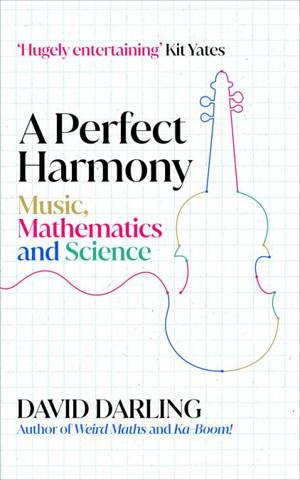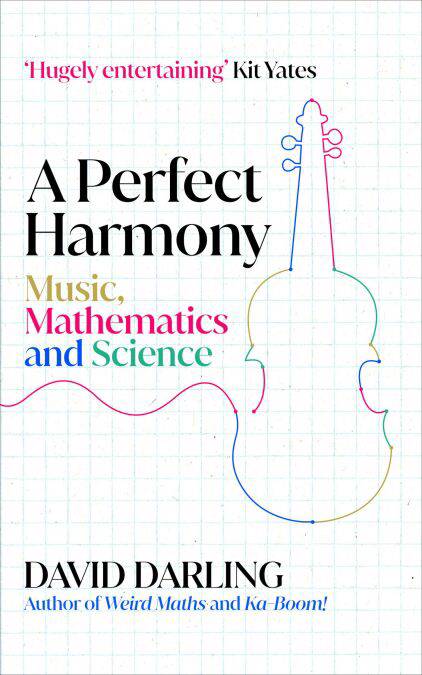
Bedankt voor het vertrouwen het afgelopen jaar! Om jou te bedanken bieden we GRATIS verzending (in België) aan op alles gedurende de hele maand januari.
- Afhalen na 1 uur in een winkel met voorraad
- In januari gratis thuislevering in België
- Ruim aanbod met 7 miljoen producten
Bedankt voor het vertrouwen het afgelopen jaar! Om jou te bedanken bieden we GRATIS verzending (in België) aan op alles gedurende de hele maand januari.
- Afhalen na 1 uur in een winkel met voorraad
- In januari gratis thuislevering in België
- Ruim aanbod met 7 miljoen producten
Zoeken
€ 11,17
+ 11 punten
Uitvoering
Omschrijving
A melodic odyssey through the interwoven worlds of music, physics and mathematics
From the earliest of civilisations, humans have found ways to make music, whether through makeshift drums or artfully drilled bone flutes. But how did music – effectively little more than a series of certain tones and rhythms – become so integral to the human experience?
Untangling the curious links between notes and number, musical perception, psychology and physics, David Darling examines the fascinating science behind music, from its Palaeolithic origins to the present.
Revealing surprising connections and busting pervasive myths, A Perfect Harmony asks:
Why do musicians tend to be better at maths than non-musicians? Why do we find some pieces sad and others happy? Will playing Mozart to babies predispose them to genius? Could an AI write the perfect symphony?
From the earliest of civilisations, humans have found ways to make music, whether through makeshift drums or artfully drilled bone flutes. But how did music – effectively little more than a series of certain tones and rhythms – become so integral to the human experience?
Untangling the curious links between notes and number, musical perception, psychology and physics, David Darling examines the fascinating science behind music, from its Palaeolithic origins to the present.
Revealing surprising connections and busting pervasive myths, A Perfect Harmony asks:
Why do musicians tend to be better at maths than non-musicians? Why do we find some pieces sad and others happy? Will playing Mozart to babies predispose them to genius? Could an AI write the perfect symphony?
Specificaties
Betrokkenen
- Auteur(s):
- Uitgeverij:
Inhoud
- Aantal bladzijden:
- 288
- Taal:
- Engels
Eigenschappen
- Productcode (EAN):
- 9780861549863
- Verschijningsdatum:
- 4/06/2025
- Uitvoering:
- E-book
- Beveiligd met:
- Adobe DRM
- Formaat:
- ePub

Alleen bij Standaard Boekhandel
+ 11 punten op je klantenkaart van Standaard Boekhandel
Beoordelingen
We publiceren alleen reviews die voldoen aan de voorwaarden voor reviews. Bekijk onze voorwaarden voor reviews.









